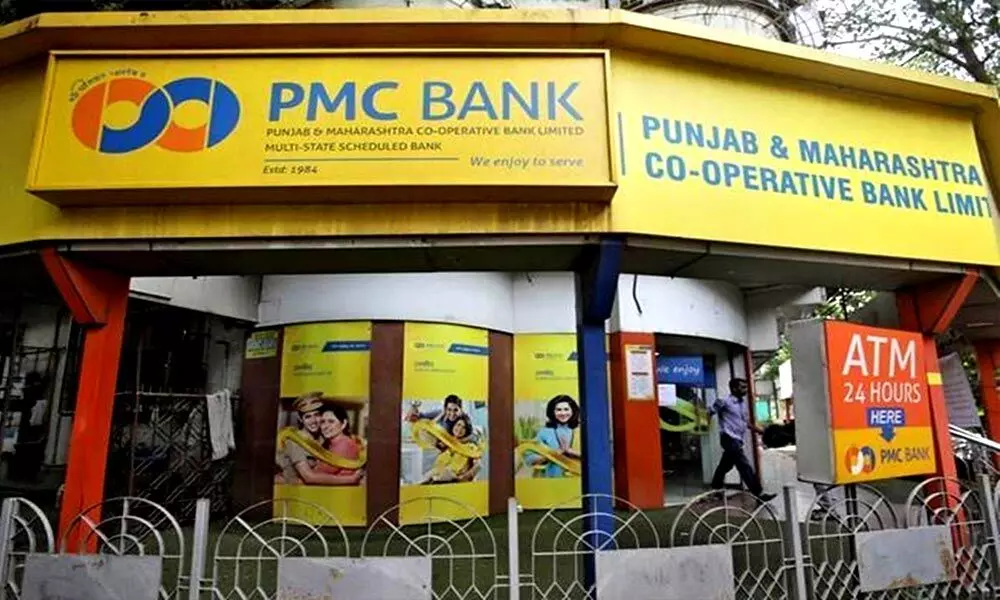PMC Bank depositors still in a fix over delay in refunds
43,000 depositors with deposits over Rs5 lakh each still unpaid; Amalgamation scheme envisages that depositors with deposits over Rs5 lakh will get their money over a period of 10 years from the appointed date
image for illustrative purpose

Banking Blues
- No interest on any of the interest-bearing deposits with the transferor bank will accrue after March 31, 2021, for a period of 5 years from the appointed date
- Simple interest at 2.75% per annum will be paid at the end of each year
Mumbai: Depositors of PMC Bank with deposits over Rs5 lakh will get their money over a period of 10 years from the appointed date as per the amalgamation scheme announced by RBI.
The Deposit Insurance and Credit Guarantee Corporation (DICGC) on Thursday said it has settled the main claim aggregating Rs3,791.55 crore of Punjab & Maharashtra Cooperative Bank Ltd (PMCBL) for 8,47,506 traceable depositors. However, it is too small a relief in view of a host of stressed depositors that are yet to get their money back.
They will have to wait for years to come to see the money bank in their accounts that too subject to the availability of the amount with the scam-hit bank.
DICGC asked depositors of the erstwhile PMCBL (transferor bank) to contact the transferee bank (Unity Small Finance Bank) for receipt of their claim amount.
Scam-hit PMCBL was merged with Unity SFB with effect from January 25 (the appointed date for the merger), as per a scheme of amalgamation.
The settlement of the deposit insurance amount comes as a relief for PMCBL depositors who had a tough time during the entire pandemic period as they could not withdraw their money on account of PMCBL being placed under RBI Directions.
Talking to Bizz Buzz, Chander Purswani, president, PMC Depositors' Forum, said: "After a long fight of 30 months, some relief has come wherein Rs5 lakh will be given to each and every retail depositor of the bank."
"Initially when we started the fight there were 9 lakh depositors, but after payment of Rs1 lakh to depositors in 30 months now there are a total of 1,43,000 depositors left and 1 lakh of them will move out now as they will receive their full money. After this, only 43,000 depositors will be left who are having deposits more than Rs5 lakh each. The remaining depositors will be paid Rs15 lakh over five years period including these Rs5 lakh after this 22,000 depositors will remain who are high networth depositors and have balance of more than Rs15 lakh amount they will get their entire money after 10 years," remarked Purswani.
Under the scheme of amalgamation, Unity SFB will pay the amount it receives from DICGC to all the eligible retail depositors of PMCBL (transferor bank), which would be an amount equal to the balance in their deposit accounts or Rs5 lakh, whichever is less.
Depositors with deposits over Rs5 lakh will get their money, depending on their balances, over 10 years from the appointed date.
No interest on any of the interest-bearing deposits with the transferor bank will accrue after March 31, 2021, for a period of five years from the appointed date. Thereafter, simple interest at the rate of 2.75 per cent per annum will be paid at the end of each year for the amounts remaining outstanding which will be payable from the date after five years from the appointed date.
As at March-end 2021, PMC Bank had deposits aggregating Rs10,535 crore. Of this, about 70 per cent are retail deposits and the rest are institutional deposits, including other urban co-operative banks (216) and co-operative societies (1,750).
PMC Bank got into trouble in 2019 due its high exposure to real estate company HDIL.
It was quite some time back when Purswani had spoken to an RBI Executive Director who had mentioned that DICGC would transfer the funds on March 31.
Everyone will receive this message now, Purswani claimed, adding that the current tranche of the Deposit Insurance Claim of PMC Bank has been settled by DICGC u/s 16 and 18 of DICGC Act.
The question is how the senior citizens will survive still remains unanswered, especially who were surviving on the interest on their fixed deposits & whether they would be able to survive for 10 years.

